In England, there’s something we say. “Being British is all about driving a German car to an Irish theme pub to drink Belgian beer then going home, buying an Indian takeaway to sit on a Swedish sofa in front of a Japanese television to watch American shows and all the while being suspicious of anything foreign.”
I went around to do a Nigerian version.
Being Nigerian is getting dressed in second-hand clothes from Cotonou, then driving to work in Tokunbo vehicles shipped from the US and fueling it with subsidized petrol imported from Dutch refineries on roads financed by Chinese loans, then returning home to eat Thailand rice on Turkish furniture while ironically having no choice but to watch South African Multichoice cable TV but still asking what we produce as a nation year in year out.
Read: Omicron: Singapore bans travellers from Nigeria
Unlike the British that have a strong financial economy made up of services, manufacturing, construction, and tourism that other nations come to patronize, Nigeria does not have that luxury of any kind.
The question of when Nigeria will be respected in the world might border on two things.
- The economic significance of Nigeria to other nations; or
- Marginalization because of skin colour.
For objectivity, we will not discuss the latter but explore the former to tinker with solutions for policymaking.
On the 4th of December 2021, Nigeria was added to the list of countries on the United Kingdom’s Red List. The British Government explained the decision to add Nigeria to the travel red list from 4 am Monday 6th December following 21 cases of Omicron reported in England which are linked to travel from Nigeria which brings the total number of UK Omicron cases to 134 UK cases.
Read: Omicron: Canada-bound Nigerian travellers decry travel ban on Nigeria
This decision sparked an uproar amongst Nigerians as they believe that they have been unfairly put on the UK government’s red list.
The negative reaction to the British Government’s release is justified as other countries with more COVID cases are not on the red list including the originating country – China ($14.7 trillion GDP) and the country with the most COVID cases, the United States of America ($20.94 trillion GDP).
Nigeria ($432.2 billion GDP) has had 215k cases and 2980 deaths over the period of the Coronavirus pandemic and the “Omicron” variant is yet to have any fatal casualty worldwide according to the World Health Organization.
From the diagram above, Nigeria has a flat line on the 0 axis as daily cases are less, compared to other nations
Earlier in the year, Emirates directed Nigerian travelers at the Lagos and Abuja airports to conduct rapid COVID-19 tests before departure, which led to a ban on Emirates flights in Nigeria. This preceded a 10-month diplomatic row between the United Arab Emirates and Nigeria.
Read: FG bans over 2,000 Nigerians and foreigners from traveling abroad and into the country for one year
So why is Nigeria so easy to ban despite the low COVID cases?
Could it be because of our frail economic power?
There is a distinct possibility that Nigeria not being an international economic powerhouse is a reason why bigger nations can impose bans on Nigeria without thinking twice.
The tale might be different if Nigeria had a 10 trillion dollar economy. A fair amount of Nigerians that go overseas do so for greener pastures, and although they end up being integral to the economy of western nations – they are still beneficiaries of developed nations.
Nigeria’s dependence on developed nations could play a role in the leverage between countries. Nigeria imports postage stamps. 96% of these postage stamps come from the United Arab Emirates at a value of over $700 million.
Can Nigeria threaten an import ban on postage stamps to move the UAE’s hand? The answer is no. Nigeria will suffer more. Would the dynamics be different if the United Arab Emirates knew we had the capacity to self-produce postage stamps? Possibly yes.
Using global precedents, the rivalry between the United States and China always ends up with both nations using goods and commodities as trade pawns for leverage.
But before we ask, when the world will respect Nigeria, a more pertinent question is when will Nigeria respect Nigeria? Nigeria, a mono-product economy where oil accounts for over 95 percent of its export earnings, is yet to satisfy the needs of her citizens.
Double-digit inflation, a currency on auto-devaluation and lack of optimal refineries to refine their own oil are some of the highlights of the struggling West African Giant.
Last week, an image went viral on social media – 10 Best African countries to invest in. In 2014, Nigeria was comfortably second place. In 2021, Nigeria is nowhere to be found in the top 10. So many reasons behind the decline from this ranking.
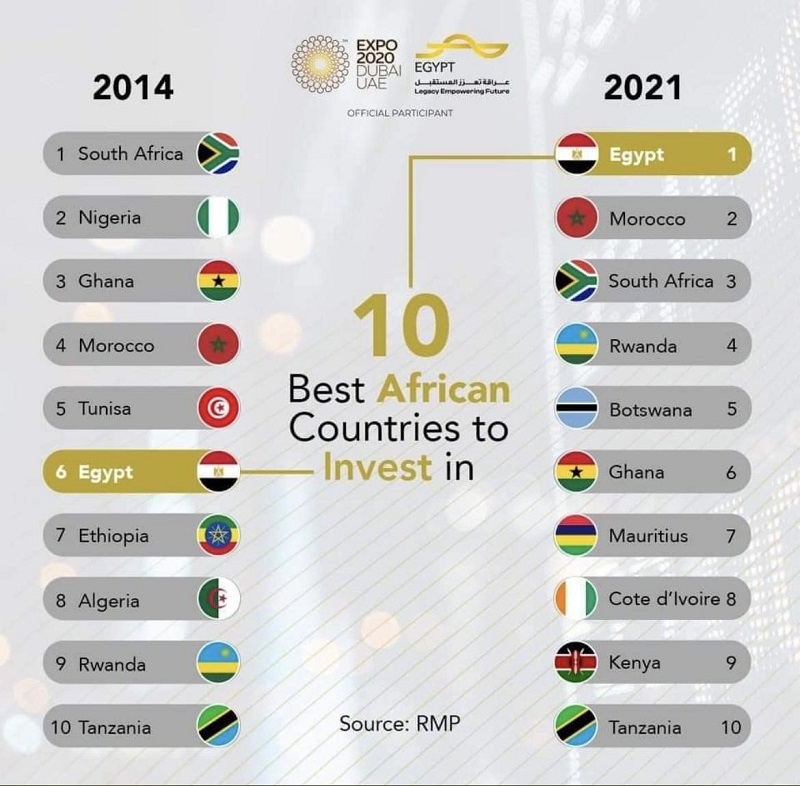 However, President Muhammadu Buhari still remains upbeat that Nigeria remains the most viable and attractive investment destination in Africa as he said in an address at a trade and investments forum at the Dubai Expo 2020, in the United Arab Emirates on Saturday.
However, President Muhammadu Buhari still remains upbeat that Nigeria remains the most viable and attractive investment destination in Africa as he said in an address at a trade and investments forum at the Dubai Expo 2020, in the United Arab Emirates on Saturday.
Investors would beg to differ as Foreign Direct Investment and Capital importation has declined during the last few years.
To further understand the dynamics between Nigeria and other countries. Let’s place side by side Foreign Direct Investments to Nigeria (FDI) and Diaspora Remittances to Nigeria within the same time period as the ranking above.
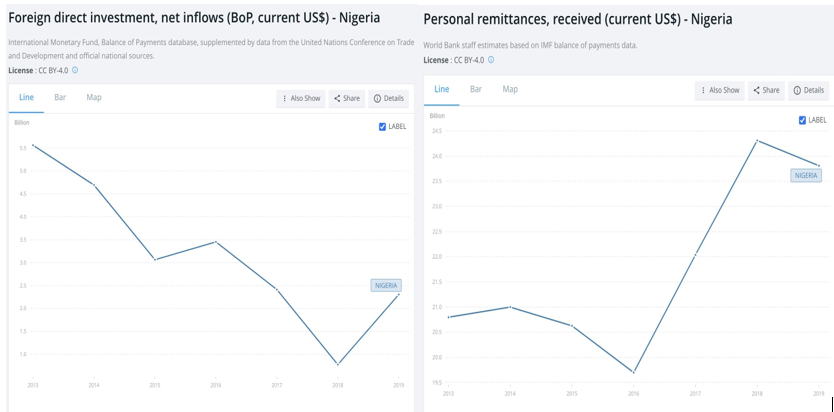 Source: World Bank (2014-2019)
Source: World Bank (2014-2019)
While we observe FDI has declined over the years, Remittances have increased over the same time period. What this can be interpreted to mean is – countries have reduced their interest in Nigeria and Nigerians have increased their interest in working abroad and sending money back home.
The Coronavirus has further exposed the frailties of the Nigerian economy and how Nigerian policymakers use this as a learning curve would safeguard the interests of Nigerians in the future.
This has presented an opportunity and a motivating factor for Nigeria to develop herself, build more institutions that can develop her own goods, commodities and vaccines to reduce reliance on other nations and improve export substitution.
To conclude with a side note – Nigeria would also need to improve her vaccination count. 6.5 million vaccinated Nigerians (1.7% of the entire population) presents a case for developed nations issuing travel bans. In 2022, we believe vaccines would be more available and complaints about unequal distribution will start to abate during this period as access to patients’ arms becomes a larger limiting factor than access to jabs. Nigeria needs to be open to vaccinations so as to disprove any more potential travel bans.


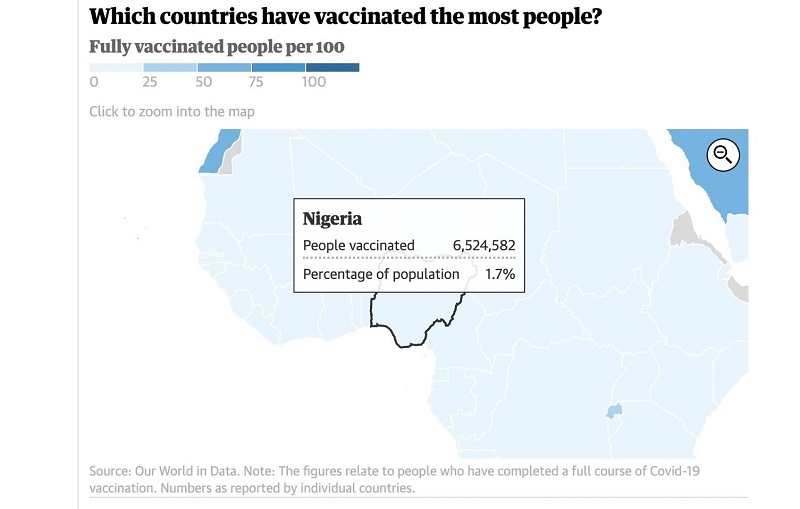
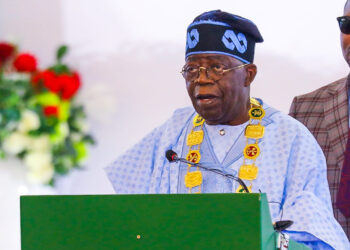

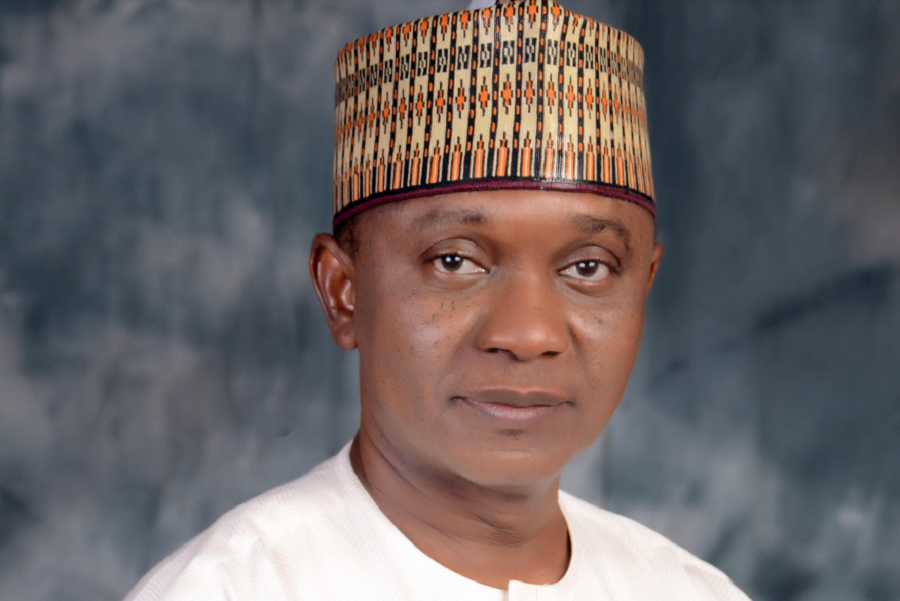











May God help us in Nigeria, I can’t even proud to be a citizen of this country anymore, all our politicians know the right thing to do to make this country a great nation but they a selfish, there main goal is to embezzle public funds, turning masses money to their own property…
I was impresse with this report kudos to the writer @dapo thomas
A very intelligent submission sir
You have said it. And until we all stand up to the evil and corruption that has eaten deep into the system, stand up to these so called politicians steadily running the country to the ground with any consideration to posterity and future, we will wake up someday and Nigeria will be no more… it’s getting there.
When it starts to conduct itself like a giant. I cant see much to be proud of.